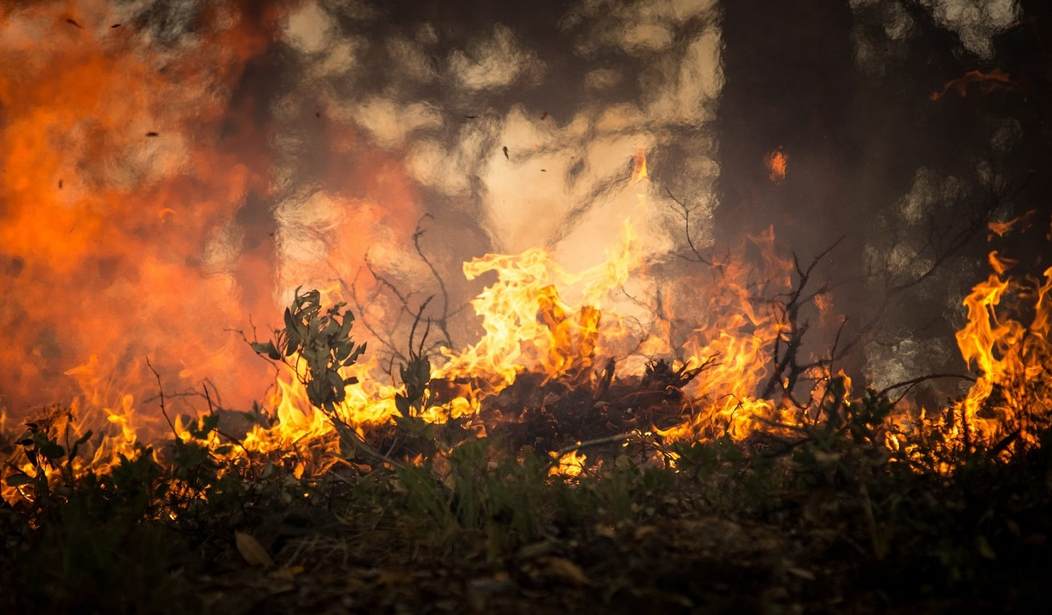British historian Eric Hobsbawm died on Sunday at age 95. As Michael Moynihan wrote last year in the Wall Street Journal, “It’s not that he didn’t know what was going on in the dank basements of the Lubyanka and on the frozen steppes of Siberia. It’s that he didn’t much care:”
One wouldn’t know it from “How to Change the World,” but Mr. Hobsbawm wasn’t always convinced that the Soviet Union, along with its puppets and imitators, was misunderstanding the essence of Marxism. He never relinquished his membership in the Communist Party, even after Moscow’s invasions of Hungary and Czechoslovakia. Indeed, he began his writing career with a co-authored pamphlet defending the indefensible Soviet invasion of Finland in 1939. “To this day,” he writes in his memoirs, “I notice myself treating the memory and tradition of the USSR with an indulgence and tenderness.” There was some ugliness in the socialist states occupied by Moscow, he admitted in 2002, but “leaving aside the victims of the Berlin Wall,” East Germany was a pleasant place to live. Other than that, how was the play, Mrs. Lincoln?
In a now infamous 1994 interview with journalist Michael Ignatieff, the historian was asked if the murder of “15, 20 million people might have been justified” in establishing a Marxist paradise. “Yes,” Mr. Hobsbawm replied. Asked the same question the following year, he reiterated his support for the “sacrifice of millions of lives” in pursuit of a vague egalitarianism. That such comments caused surprise is itself surprising; Mr. Hobsbawm’s lifelong commitment to the Party testified to his approval of the Soviet experience, whatever its crimes. It’s not that he didn’t know what was going on in the dank basements of the Lubyanka and on the frozen steppes of Siberia. It’s that he didn’t much care.
And he’s far from alone among left-wing intellectuals in preferring the comfort of intellectual abstractions, long after they were proven to be false, as I wrote a year ago, when I linked to Moynihan’s column on Hobsbawm. For example, here’s Paul Krugman of the New York Times, September 14th, 2001:
It seems almost in bad taste to talk about dollars and cents after an act of mass murder. Nonetheless, we must ask about the economic aftershocks from Tuesday’s horror. These aftershocks need not be major. Ghastly as it may seem to say this, the terror attack — like the original day of infamy, which brought an end to the Great Depression — could even do some economic good.
And here’s Mark Steyn in After America on President Obama’s similarly aloof take on 9/11:
He’s the first president to give off the pronounced whiff that he’s condescending to the job—that it’s really too small for him and he’s just killing time until something more commensurate with his stature comes along. When he lectures America on the Ground Zero mosque or immigration, he does not speak to his people as one of them. When he addresses the monde, he speaks as a citoyen du for whom the United States has no greater or lesser purchase on him than Papua or Peru. There is an absence of feeling for America—as in his offhand remark to Bob Woodward that the United States can “absorb” another 9/11. During the long Northern Irish “Troubles,” cynical British officials used to talk off-the-record about holding casualties down to “an acceptable level of violence,” but it’s eerie to hear the head of state take the same view—and about a far higher number of fatalities. Ask the 3,000 families who had a huge gaping hole blown in their lives whether another 9/11 is something you want to “absorb” rather than prevent.
At The Blaze earlier this month was this item: “Militant Environmentalists Call for Executions and ‘Decisive Ecological Warfare:’”
“Do we need a militant movement to save the planet (and ourselves)?”
That was the question posed in recent article on the left-wing site Alternet when it interviewed a group of radical environmentalists who are allegedly endorsing “Decisive Ecological Warfare.” And in order to realize their goal of ridding the planet of industrial civilization — even modern agriculture — the group intends to employ tactics “of both militaries and insurgents the world over.”
One of the activists, Derrick Jensen, allegedly even believes those who destroy the environment should be summarily executed: “If it were up to me, all the people associated with the Gulf oil spill, which is murdering the Gulf, would be executed. That would be part of the function of a state,” said Jensen.
In addition to Jensen, the two other environmentalists interviewed in the article – Lierre Keith, and Aric McBay — have spearheaded a fringe movement called the “Deep Green Resistance” (with a book of the same name) that calls for “direct attacks on infrastructure” and an annihilation of civilization as we know it.
According to the far-left triumvirate, humanity must devolve into living primitive, “indigenous” lifestyles. To this end, Keith targeted a litany of ills that must be stopped, declaring: “We need a culture that is self-consciously oppositional to things like corporate power, capitalism, industrialization and ultimately civilization, because that is the arrangement of power on this planet right now.”
As The Blaze notes, they’re currently flogging a book, and they have a Website, so presumably they only wish to take civilization back to 1440 or 1969, respectively. So they’ve got that going for them, at least.
And presumably, sufficient destruction of the planet should really help to jump start the economy, right?
(Via The Brothers Judd.)










Join the conversation as a VIP Member